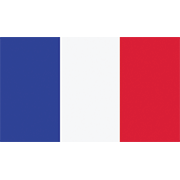Fiscal subject related
An invoice is a detailed note of services performed or goods sold. Here are the requirements regarding the form:
- It must be written in French.
- It must be drawn up in two copies, including the original for the customer.
- It must include several detailed indications below.
A company established in France may also, under certain conditions, invoice in a foreign currency provided that the foreign currency is internationally recognized and convertible (dollar or pound sterling, for example) and that the reintegration into the company's accounts is done in euros. The invoice can also be written in a foreign language, in which case the administration may require the translation to be certified by a sworn translator for control.
According to the French Ministry of Economy, all invoices must include the name and address of the supplier, as well as the date of issuance and the invoice number. Additionally, the customer's name and address must be included, along with a detailed description of the goods or services provided.
Furthermore, the invoice must also show the amount of tax due and the rate of tax applied, along with the total amount payable, including all taxes. If the invoice is subject to VAT, the VAT identification numbers of the supplier and the customer must also be included.
These rules are applied to all invoices issued by businesses, regardless of the sector they operate in or the size of the company. Failure to comply with these requirements could result in penalties and fines.
Companies that do not comply with the invoicing rules are subject to the following fines:
- a tax fine of €15 per missing or inaccurate statement. However, the amount of the fine may not exceed a quarter of the amount of the invoice.
- an administrative fine of €75,000 for a natural person and €375,000 for a legal person. This fine can be doubled in the event of a repetition of the fault within two years of the first sanction.
The French government has stated that the new e-invoicing mandate is necessary to combat tax fraud and ensure fair competition between businesses. The move is part of a wider effort by the French government to crack down on tax evasion and promote transparency in business practices.
In conclusion, businesses operating in France must ensure that all invoices they issue comply with the new regulations announced by the French government. This is to avoid penalties and fines, and to contribute to a fair and transparent business environment in France.
Other news from France
New document was uploaded: S4F backoffice patch
S4F backoffice patch is intended for users who have already installed S4F backoffice and are intended to update existing installations to latest version. To do so apply only patches that are marked with version number that is newer than your currently installed instance of backoffice. Read more



New document was uploaded: Recorded webinar: End of Self-Certification in France
 France
Author: Nikola Novković
France
Author: Nikola Novković
On April 24th, 2025, Fiscal Solutions organized a free webinar on the topic of "End of Self-Certification in France-What retailers need to know?". The webinar was held by Fiscal Solutions Legal Consultant Nikola Novković. Let’s find out more about the key major changes! Read more



France: Grace period provided for software compliance
 France
Author: Nikola Novković
France
Author: Nikola Novković
France has introduced a grace period for software compliance with Article 286 of the tax code, which mandates certification by a recognized organization instead of relying on a publisher-issued certificate. While the new rules apply from February 16, 2025, software users may continue using publisher certificates until August 31, 2025. Read more



New event was created: Join our free webinar: End of Self-Certification in France - What Retailers need to know
 France
Author: Nikola Novković
France
Author: Nikola Novković
France is ending self-certification. This is not a minor update - it’s a compliance breakthrough. France is ending self-certification. This is not a minor update - it’s a compliance breakthrough.Join Nikola Novkovic on April 24 at 3 PM for a webinar that will give you the full roadmap to staying compliant in France’s updated fiscal system.What we’ll cover: ➡️ The exact fiscaliza... Read more



France: Parliament Rejects Amendment to Delay B2B E-Invoicing to September 2026
 France
Author: Nikola Novković
France
Author: Nikola Novković
On April 11, 2025, the French National Assembly rejected a proposed amendment to delay the e-invoicing mandate by one year. As a result, the original timeline remains: all businesses must be able to receive electronic invoices by September 1, 2026, with large and intermediate firms also required to send them, while smaller businesses must comply by September 1, 2027. Interoperability testing among... Read more



New document was uploaded: S4F backoffice patch
S4F backoffice patch is intended for users who have already installed S4F backoffice and are intended to update existing installations to latest version. To do so apply only patches that are marked with version number that is newer than your currently installed instance of backoffice. Read more



TLv6 Implementation Marks Significant Shift in EU’s Trust List Format
A new EU Trust List format, TLv6, will officially replace TLv5 in May 2025 as part of the updated eIDAS Regulation (EU 2024/1183). It introduces key technical changes like a new URI field, updated signature format, and optional phone number support. Organizations must update their systems to avoid signature validation failures and service disruptions, as TLv5 will no longer be valid once TLv6 take... Read more


